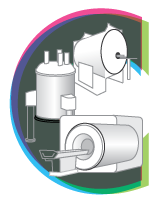The interaction of valence and information gain during learning, perception and decision-making
Date:
Lecture / Seminar
Time: 11:00-12:30
Lecturer: Ido Toren (PhD Thesis Defense)
Organizer: Department of Brain Sciences
Details: Prof. Rony Paz Lab, Dept of Neurobiology
Abstract: Decision making is a fundamental ability to human life. Even the simplest decisi ... Read more Decision making is a fundamental ability to human life. Even the simplest decision we make requires integration of multiple factors in our brain, such as prior knowledge, information from the environment, emotions and many more. Despite many years of research and numerous important and ground-breaking findings on how learning and decision-making are generated in our brain, a lot of knowledge is still required for a comprehensive understanding of it. My research initiated from the motivation to understand the unique contribution of valence (rewards and punishments) – when presented as feedback during learning – to perception and decision-making. For that purpose, I studied multiple groups of individuals under different experimental conditions created to elucidate behavioral and neural responses to rewards and punishments. I asked how prediction errors (PE, the difference between expected and received outcomes) bias the perception of time, and how valence and information from feedback, factors that are often indistinguishable, differently guide decision making in a multi-choice environment. Using functional MRI and computational models, I found that positive and negative PEs, known to drive learning, bias the perception of time in opposite directions. Positive PEs induce change in the perceived time so it seems longer compared to a neutral condition (no PE). In contrast, when a negative PE is detected, time is perceived to be shorter. My results identify the Putamen, a structure that receives dopaminergic projections and is involved in time perception, as the brain region that likely drives this bias and underlies the interaction between time perception and prediction-errors.
In addition, I demonstrated that knowing the outcome valence in advance can enable an information-based decision making, namely one that is not affected by the valence itself and is driven only by the information available in the environment. Because uncertainty regarding choice increases when more options are available to choose from, a ‘right’ feedback provides more information to the learning process, compared to a ‘wrong’ feedback. This was accompanied by a differential activation in the ACC, PFC and striatum. Importantly, in this context, punishment avoidance is equally rewarding, and indeed I found that choice behavior and the neural networks underlying choice and feedback processing are similar in the two scenarios – for punishments and rewards. Overall, my work develops and suggests computational and neural mechanisms for specific roles of the information carried by prediction-errors. These findings can enhance our understanding of the fundamental roles of valence and information gain during learning and decision making.
Zoom link to join: https://weizmann.zoom.us/j/92234357805?pwd=aVkrR21CSUVtVS9tSEJYRDkwOFRidz09
Meeting ID: 922 3435 7805
Password: 648092
Close abstract

